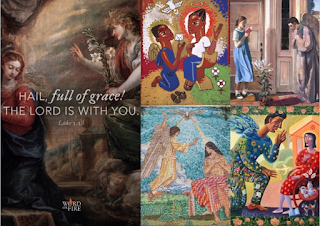I spent a LOT of this year reading. Sometimes it was boring, but mostly, it was awesome. I crossed so many books off my to-read list. I laughed and I learned. I don't think I'll read 100 books next year, but I will keep reading.
As the year draws to a close, I wanted to compile a list of some of the best books I read this year.
Nonfiction - Religion
The Faith Club: A Muslim, A Christian, A Jew - Three Women Search For Understanding
Rayna Idliby, Suzanne Oliver, and Priscilla WarnerIn this book, three women meet to collaborate on a children's book promoting religious literacy and interfaith dialogue. On the way, they realize their own misconceptions and work towards greater interfaith understanding. Religious people - read this!
What We Talk About When We Talk About God
Rob Bell
Rob Bell, man. Rob Bell is a pastor of an American church and a theologian for the common people. Bell is treading new paths and redescribing the way we look at God and the Bible - and you don't need a doctorate to understand. This books presents God as bigger, fuller, more complex than what we have thought in the past. Bell challenges us to think of a God who is bigger than us and what we've been thinking, a God who challenges us to be more.
Mormon Feminism: Essential Writings
Joanna Brooks, Rachel Hunt Steenblik, and Hannah Wheelwright
This book is so, so good. Brooks, Steenblik, and Wheelwright compile a new collection of essays, fiction, and poetry on Mormon feminism from the 1970s onward. Some if new historical studies into Mormon history and Mormon women's involvement in the women's movement early on. Others describe current issues and offer alternative paradigms and possible solutions. Whether you agree or not, this is a good book to understand where Mormon feminists are coming from. Mormons - read this!
How Do You Spell God?
Mark Gellman & Thomas Hartman
A rabbi and a priest team up to write a religious education book for older children and preteens. Covering the world's six major religions (and some smaller ones!) this book compares ideas of God, heaven, morality, clergy, and more. Heart information, accessible even to kids. Religious literacy is so important, and this book is a wonderful tool!
Joseph Campbell, a scholar of comparative mythology, covers all kind of topics - sin, salvation, heroes, ritual, marriage, and more. What is the value of myth to religion? And how do various mythologies convey the same religious truths? Campbell addresses this and more with Bill Moyers.
The Power Of Myth
Joseph Campbell with Bill MoyersJoseph Campbell, a scholar of comparative mythology, covers all kind of topics - sin, salvation, heroes, ritual, marriage, and more. What is the value of myth to religion? And how do various mythologies convey the same religious truths? Campbell addresses this and more with Bill Moyers.
Excavating Jesus
John Dominic Crossan and Jonathan L. Reed
A former Catholic priest and an archaeologist team up to present the historical Jesus in his first-century Palestinian context. With detailed descriptions of archaeological evidence and careful readings of written evidence in the gospels, Crossan and Reed build an engaging portrait of what this man's life may have looked like. Christians - read this!
Fiction
The Jungle
Upton Sinclair
First described to me as a novel about unsanitary meat packaging, this novel is so much more. Sinclair tackles life for immigrant families at the turn of the 19th century, life for the poor, life for working class. The protagonist family suffers repeatedly at the hands of the wealthy. Injustice exposed. Eye opening. Rich people - read this!
Franny And Zooey
J.D. Salinger
This book doesn't really have a plot. But it's one of those novels that has such beautiful prose that you just want to drink. You just lay there looking at this book and read it over and over and try your best to soak up the beauty.
Journey To The East
Herman Hesse
Another of those "drink it up beautiful" novels. It's about a pilgrim who, you guessed it, journeyed to the East looking for spiritual fulfillment.
The Stepford Wives
Ira Levin
One neighborhood, a men's club up on a hill, and women who only want to keep house. Suspicious? This one keeps you on the edge of your seat, for sure.
A Lesson Before Dying
Ernest J. Gaines
Two black men struggling to live fully in southern Louisiana. One in jail, one a poor teacher. Both are changed. Enlightening on issues of race. White people - read this!







